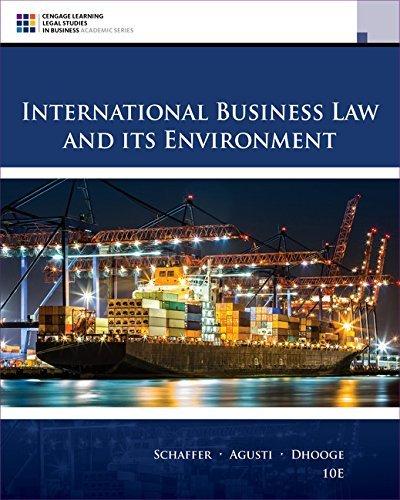Dr. Abid Hanson was traveling with his wife and family aboard an Olympic Airways flight from Athens
Question:
1. Why were the events in this case deemed "unexpected or unusual"?
2. Why did the Court reject Olympic's argument that the term "accident" refers only to affirmative acts?
3. What is the significance of the attendant's failure to move the asthmatic passenger away from smoke when that was contrary to airline industry procedures?
4. How does this case differ from Air France v. Saks and the British "deep vein thrombosis" cases, cited in the text?
Fantastic news! We've Found the answer you've been seeking!
Step by Step Answer:
Related Book For 

International Business Law And Its Environment
ISBN: 9781305972599
10th Edition
Authors: Richard Schaffer, Filiberto Agusti, Lucien J. Dhooge
Question Posted:





